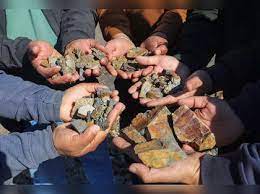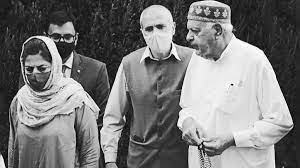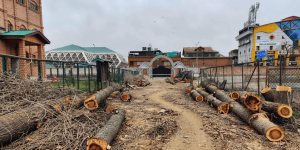
Kashmir’s Lithium Awaits: Government Reopens Auction Process
India Restarts Auction for Jammu and Kashmir’s Lithium Reserves After Low Initial Bids
India is taking another shot at attracting investment in its domestic lithium resources. The government announced a re-auction of lithium reserves located in Jammu and Kashmir after the first round received only two bids. This move highlights India’s strategic push to secure a steady supply of the critical mineral for its growing electric vehicle and clean energy sectors.
What Happened in the First Round?
Details about the initial bids remain confidential. However, reports suggest the government received just two bids, which fell short of expectations. The reasons behind the low participation could be several. Some potential bidders might have found the initial terms unattractive, or they might have been waiting for a clearer picture of the resource potential within the offered blocks.
What’s on Offer in the Re-Auction?
The re-auction offers a composite license for seven critical mineral blocks in Jammu and Kashmir. This means a single successful bidder will have the rights to explore and potentially mine lithium across all seven blocks. This approach could be more attractive to larger companies seeking a significant and consolidated lithium resource base.
The Significance of Lithium for India
Lithium is a vital component in lithium-ion batteries, which power electric vehicles and provide energy storage solutions for renewable energy sources like solar and wind. As India aims to expand its electric vehicle adoption and integrate more renewable energy into its grid, securing a domestic supply of lithium becomes crucial. Currently, India relies heavily on imports to meet its lithium needs, leaving it vulnerable to price fluctuations and supply chain disruptions.
What Lies Ahead?
The re-auction, with a deadline for bids set for May 14th, 2024, presents a renewed opportunity for companies to participate. The Indian government will need to ensure the terms are competitive and attractive to draw in a wider pool of bidders. Additionally, providing clearer geological data on the lithium potential within the offered blocks could incentivize participation.
Potential Implications
A successful re-auction could have significant implications for India’s clean energy ambitions. Increased domestic lithium production could lead to:
- Reduced Dependence on Imports: A reliable domestic source of lithium would lessen India’s reliance on foreign suppliers, potentially stabilizing prices and ensuring a steady supply for its battery and clean energy industries.
- Boost to Electric Vehicle Production: Greater access to lithium could accelerate India’s electric vehicle manufacturing, aligning with its goal of promoting cleaner transportation options.
- Job Creation: The development of a domestic lithium mining and processing industry could create new jobs and contribute to economic growth in Jammu and Kashmir.
Challenges and Considerations
While the re-auction presents an exciting opportunity, challenges remain. Environmental concerns surrounding lithium mining need to be addressed with responsible and sustainable practices. Additionally, ensuring fair compensation for local communities and addressing any potential security concerns in the region will be crucial for the project’s long-term success.
The re-auction of Jammu and Kashmir’s lithium reserves marks a critical step in India’s journey towards securing its clean energy future. The coming months will be crucial in attracting strong bids and ensuring responsible development of this valuable resource.

